
So this is the machine.

So this is the machine.
This is the second of this style painting I’ve seen around. My friend Steve told me that there are are a series of 12 of them and they were, indeed, made by a particular church. He suggested that they were a set of stages of the cross but this one wouldn’t fit that description. It is on a small building at the rear of a pub.
Driving back with the kids they asked “Can we go and see Phlegm?” So we did and two of them came out to see what was going on. A man was there wearing a mask, or with it round his neck, a protection mask for spray paint. I asked which bit he was doing. The pipes he said. Are you Phlegm I asked. Yes he replied. I thanked him for the wonderful artwork he leaves around the city. It is so generous I said. We chatted a while, the children asking what is this and what is that and who did this and who did that. Phlegm started back to work looking for all the world like a renaissance muralist up there on his ladder. The work remains unfinished. I’ll go back tomorrow. It is a hard one he said, it is collaborative, and he doesn’t like to be more that four days or so at a painting.
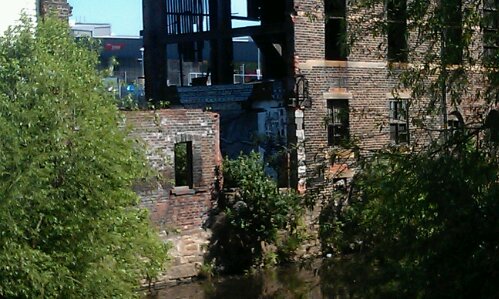
More uneven writing
Painting thrown against the wind
Unsettle the scene

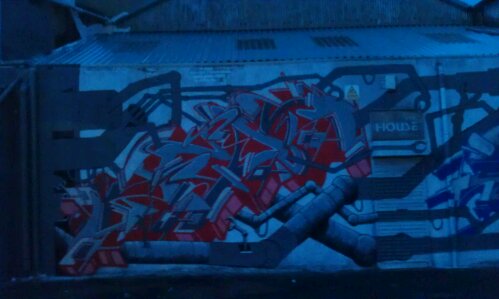
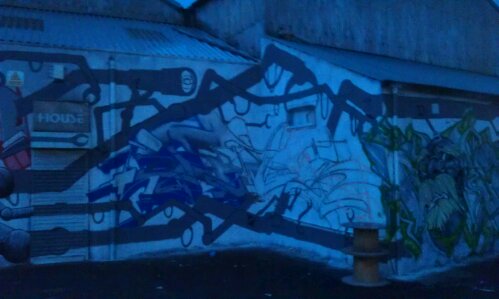
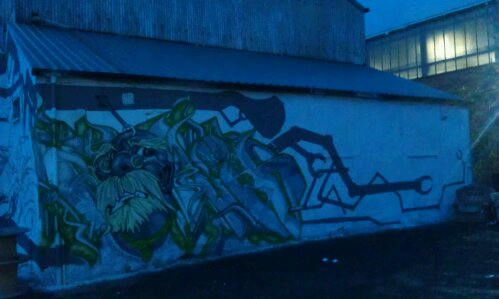
Almost got there before it got dark but not quite. The machine looks so very primitive. Really like a wooden structure supporting steel and glass or like some house on stilts standing in the sea.
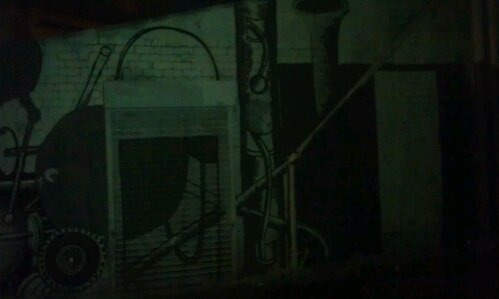
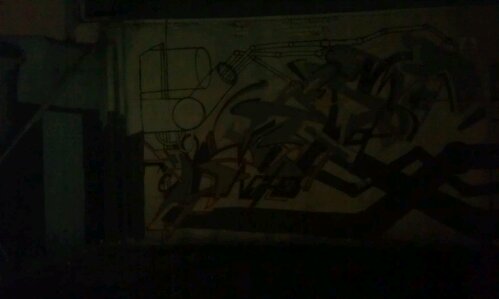
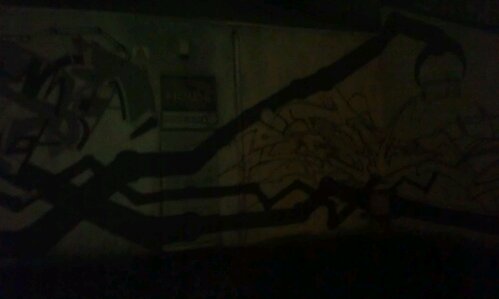
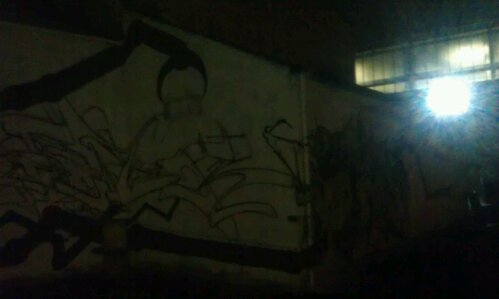
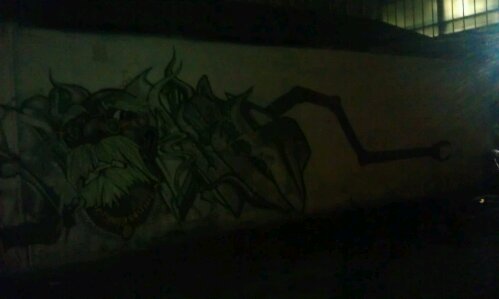
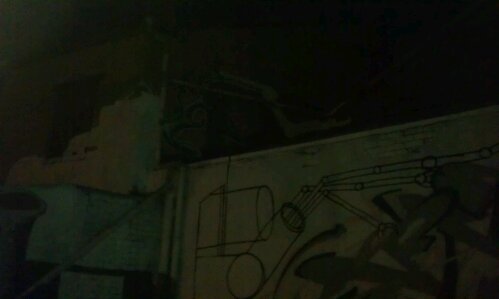
This appears during Tuesday. Phlegm is building a machine that is holding the other pieces together, suspending them in mid air.
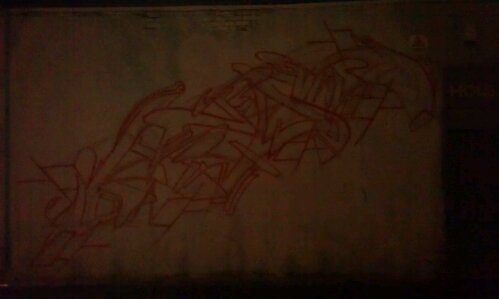
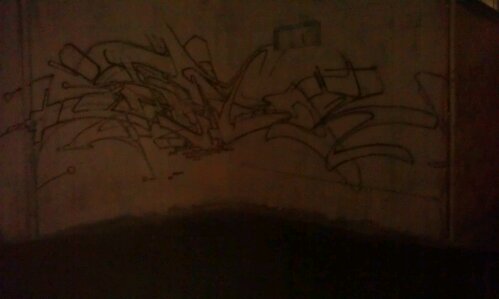
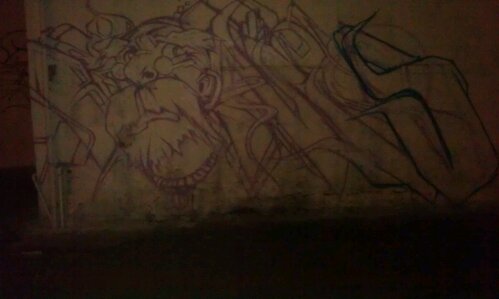
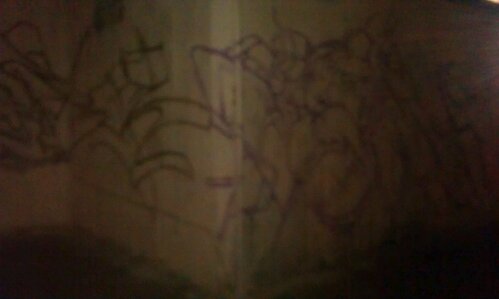
This is there on Monday evening. Doesn’t look like Phlegm I think. Could he have been taking the piss out of my middle class sensibilities?
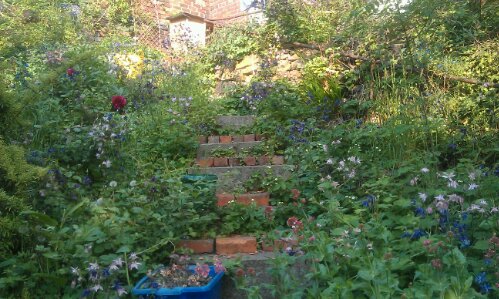
dense moorish monkish
bothering around the path
month of may believe